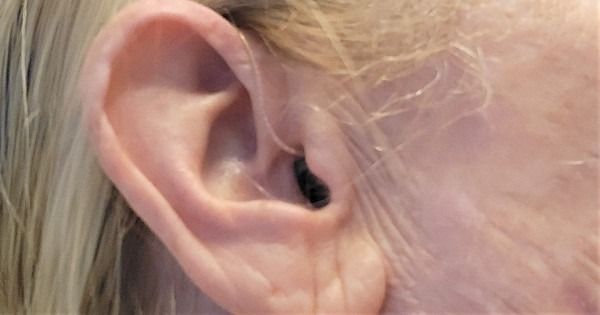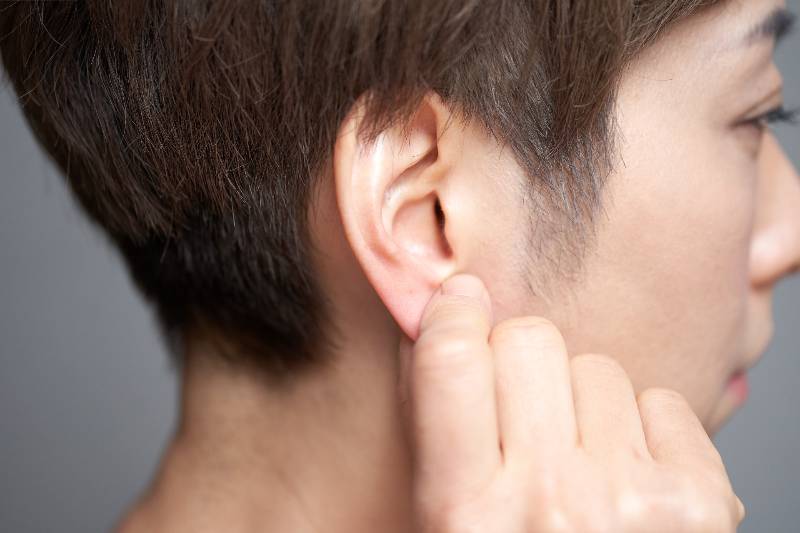Hearing Loss
What is deafness?
Hearing loss is a partial or total inability to hear sounds in one or both ears. It can range from mild to profound and may be caused by a variety of factors, including age, genetics, noise exposure, infections, and certain medications.
What are the different types of hearing loss?
The three main types of hearing loss are conductive, sensorineural, and mixed. Conductive hearing disorder is caused by problems in the outer or middle ear, while sensorineural hearing loss is caused by damage to the inner ear or auditory nerve. Mixed hearing loss is a combination of both.
Can hearing loss be cured?
While some types of hearing loss can be treated or managed with hearing aids, cochlear implants, or other interventions, most types of hearing loss cannot be fully cured.
Hearing Disorders
What is tinnitus?
Tinnitus is a hearing disorder characterized by the perception of ringing, buzzing, or other sounds in the ears or head. It can be caused by a variety of factors, including noise exposure, age-related hearing disorder, and certain medical conditions.
What is hyperacusis?
Hyperacusis is a hearing disorder in which normal environmental sounds are perceived as too loud or even painful. It can be caused by a variety of factors, including noise exposure, head injury, and certain medical conditions.
Deafness
What is deafness?
Deafness is a complete inability to hear sounds in one or both ears. It can be caused by a variety of factors, including genetics, infections, and certain medications.
What is the difference between deafness and hard of hearing?
Hard of hearing refers to a partial loss of hearing, while deafness refers to a complete loss of hearing.
QUIZ - SYMPTOMS OF HEARING LOSS
Hearing Disability:
What is a hearing disability?
A hearing disability is any condition that impairs an individual’s ability to hear and understand sounds. This can include hearing loss, tinnitus, and hyperacusis.
Hearing Loss in Children:
How common is deafness in children?
- Hearing loss is one of the most common birth defects, affecting approximately 1-3 out of every 1,000 newborns.
What are some common causes of deafness in children?
Common causes of hearing loss in children include genetics, infections, noise exposure, and certain medications.
What are some signs that a child may have hearing loss?
Signs of hearing loss in children may include delayed speech and language development, difficulty following instructions, and increased volume of speech and television.
Deafness Treatment Options
FAQ: What are the treatment options for hearing loss? Answer: Treatment options for hearing loss depend on the cause and severity of the condition. Some forms of hearing loss can be treated with medication or surgery, while others may require hearing aids or cochlear implants. In some cases, changes in lifestyle or behavior can also help improve hearing loss.
FAQ: Are there any alternative treatments for hearing loss? Answer: While there is no cure for hearing loss, some alternative treatments have shown promise in improving hearing function. These include acupuncture, herbal supplements, and certain sound therapies. However, it’s important to consult with a healthcare professional before trying any alternative treatments.
Coping with Deafness
FAQ: How can I cope with hearing loss? Answer: Coping with hearing disorder can be challenging, but there are several strategies that can help. These include using assistive devices, learning lip-reading and sign language, practicing good communication habits, and seeking emotional support from family, friends, or support groups.
FAQ: What are some common emotional reactions to hearing loss? Answer: Hearing loss can be an emotional experience, and individuals may experience a range of emotions such as frustration, anger, denial, and depression. It’s important to seek emotional support and practice coping strategies to help manage these feelings.
Preventing Deafness
FAQ: How can I prevent hearing loss? Answer: There are several steps you can take to prevent hearing loss, such as wearing ear protection in loud environments, avoiding excessive noise exposure, taking breaks from noise, and maintaining good ear hygiene. It’s also important to monitor hearing health and seek treatment promptly if hearing loss is suspected.
FAQ: Can diet and lifestyle choices affect hearing health? Answer: Yes, certain lifestyle choices and dietary habits can have an impact on hearing health. Maintaining a healthy diet, staying physically active, and avoiding tobacco and excessive alcohol consumption can help reduce the risk of hearing loss.
Types of Deafness:
- What is sensorineural hearing loss? Sensorineural hearing disorder occurs when there is damage to the inner ear or the auditory nerve. It can be caused by aging, exposure to loud noise, certain medications, and other factors.
- What is conductive hearing loss? Conductive hearing loss occurs when there is a problem with the outer or middle ear that prevents sound from reaching the inner ear. It can be caused by ear infections, blockages, and other factors.
- What is mixed hearing loss? Mixed hearing loss is a combination of sensorineural and conductive hearing loss.
Hearing Loss in Children
How common is hearing loss in children? Hearing loss is the most common birth defect in the United States. It is estimated that about 1 in 500 newborns have a hearing loss.
What causes hearing loss in children? Hearing loss in children can be caused by a variety of factors, including genetic factors, infections, and complications at birth.
How is hearing loss in children diagnosed? Hearing loss in children is usually detected through newborn hearing screening programs. If a hearing loss is detected, further testing will be done to determine the severity and cause of the hearing loss.
How is hearing loss in children treated? The treatment for hearing loss in children depends on the cause and severity of the hearing loss. Treatment options may include hearing aids, cochlear implants, and speech therapy.
Hearing Aids:
How do hearing aids work? Hearing aids amplify sound and make it easier to hear. They consist of a microphone, an amplifier, and a speaker.
Are there different types of hearing aids? Yes, there are several different types of hearing aids, including behind-the-ear (BTE), in-the-ear (ITE), and completely-in-the-canal (CIC) hearing aids.
Do hearing aids work for all types of hearing disorder? Hearing aids can be effective for many types of hearing loss, but they may not work for everyone. The best way to determine if a hearing aid will work for you is to consult with a hearing healthcare professional.
How long do hearing aids last? The lifespan of a hearing aid depends on several factors, including the quality of the hearing aid, how well it is maintained, and how often it is used. In general, most hearing aids last between three and seven years.
Tinnitus: why it’s still such a mystery to science
Current and future trends
Increased use of telehealth: The COVID-19 pandemic has accelerated the adoption of telehealth technologies in healthcare, including in audiology. Remote audiological testing and hearing aid fittings have become more common, allowing patients to receive care from the comfort of their homes.
Advancements in hearing aid technology: Hearing aid technology is becoming increasingly sophisticated, with features like Bluetooth connectivity, noise reduction, and artificial intelligence becoming more common. As technology continues to improve, we can expect even more innovative features to be introduced.
Growth of over-the-counter hearing aids: In the United States, a new category of over-the-counter (OTC) hearing aids was introduced in 2020. This is expected to make hearing aids more accessible and affordable for people with mild to moderate hearing disorder.
Increased focus on prevention: With hearing disorder becoming more common among younger populations, there is a growing focus on preventing hearing damage before it occurs. This includes increased awareness campaigns, as well as the development of new products like earplugs designed to protect hearing in loud environments.
Advancements in cochlear implants: Cochlear implants are a type of hearing aid designed for people with severe to profound hearing loss. In recent years, advancements in cochlear implant technology have led to better sound quality and improved speech recognition, making them an increasingly popular option.
Growing use of genetic testing: Genetic testing is becoming more common in the field of audiology, as researchers work to identify the genetic factors that contribute to hearing loss. This information could be used to develop new treatments and therapies tailored to individual patients.
Integration of artificial intelligence: Artificial intelligence is being integrated into various aspects of audiology, from hearing aid technology to diagnostic tools. This could lead to more personalized treatment options and more accurate diagnoses.
Increased emphasis on mental health: Hearing loss can have a significant impact on mental health, leading to social isolation, depression, and anxiety. As such, there is a growing focus on addressing the mental health needs of people with hearing loss, including through counseling and support groups.
Tinnitus: why it’s still such a mystery to science
Genetic Connection
Hearing loss is a condition that affects many individuals across the globe, and its causes can be varied. One of the potential factors that can contribute to hearing disorder is genetics. Research has shown that there are several genetic mutations that can cause hearing loss, and the severity and type of hearing loss can vary depending on the specific genes involved. However, it’s important to note that not all instances of hearing disorder are related to genetics. Other potential causes can include exposure to loud noises, infections, medications, and aging. Therefore, while genetics may be a contributing factor in some cases, it’s not always the sole cause of hearing loss. It’s essential to consult with a medical professional to determine the cause of hearing loss and develop an appropriate treatment plan.
Discover the Secrets of Hearing Loss
Conclusion
In conclusion, the hearing industry is rapidly evolving, with new advancements in technology and treatments emerging every year. As a result, it is essential for individuals to stay informed about the latest developments in the field to make informed decisions about their hearing health.
From advances in hearing aid technology to new treatments for hearing disorder, the hearing industry is making significant progress in improving the lives of those with hearing impairments. In addition, there is a growing focus on improving accessibility for those with hearing disabilities, with initiatives aimed at making public spaces and digital platforms more hearing-friendly.
Overall, it is an exciting time for the hearing industry, with many promising developments on the horizon. By staying up-to-date on the latest trends and advancements, individuals with hearing impairments can make informed decisions about their treatment options and take advantage of the latest technologies to improve their quality of life.








